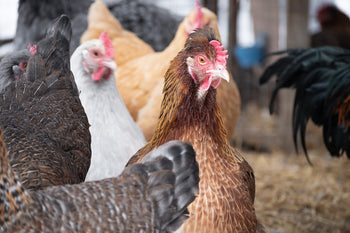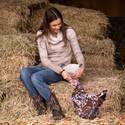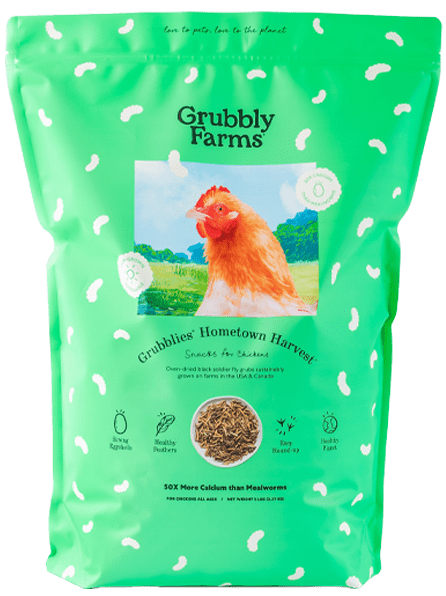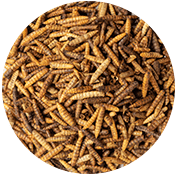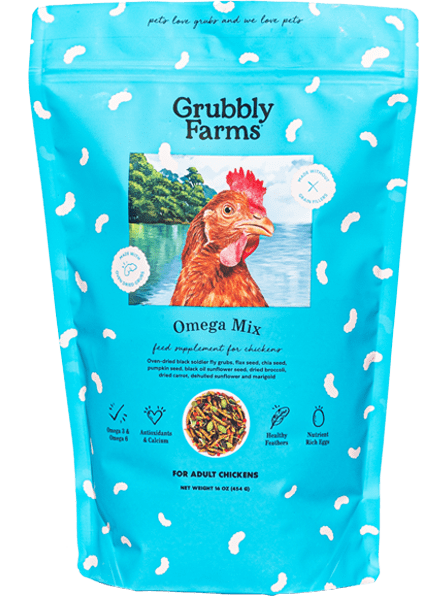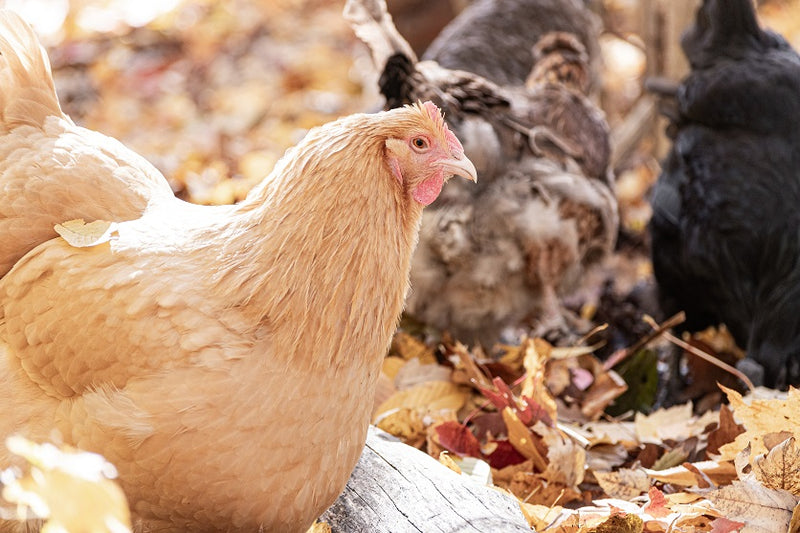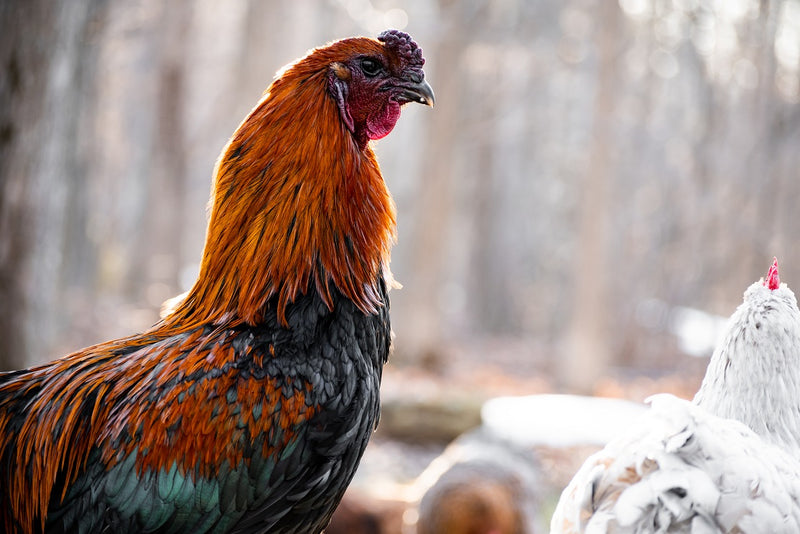Newcastle disease (vND) is a virus that can spread rapidly through chickens and may lead to death. This might seem like a scary threat to your flock, however, there are some preventative measures you can take to keep your chickens safe and healthy. Understanding how this virus works and the early symptoms of the disease can help minimize the risk of death for your flock.
What is Newcastle Disease?
Newcastle disease (vND) is caused by several different strains of the paramyxovirus (1). The disease was named after the British town of Newcastle upon Tyne, where some of the early studies on the virus were completed.
Severe forms of Newcastle disease have impacted the global poultry industry due to its deadly and virulent nature. In the United States specifically, there have been three extensive outbreaks caused by illegally imported gamebirds, imported pet birds, and infected backyard gamebirds (2).
The only way to control a virulent outbreak of vND is to cull any infected or exposed birds. Thus, knowing how to recognize and prevent the disease can mitigate the risk of your flock becoming infected.

Understanding Newcastle Disease
Newcastle disease can infect many bird species, including domestically raised birds like chickens. There are a few variations of the virus which range in severity, including:
Velogenic- Velogenic Newcastle virus is the most dangerous form of the disease. Sometimes referred to as exotic Newcastle disease, it is highly virulent and considered one of the top two most devastating poultry diseases. Infections appear suddenly, spread rapidly, and usually end in numerous deaths. The virus infects the respiratory system and/or the nervous system, leading to internal lesions and hemorrhages. Thankfully, the velogenic strain of the virus is uncommon in the United States.
Mesogenic- Mesogenic Newcastle virus is moderately virulent, and is also uncommon in the United States. Infections can cause both respiratory distress and nervous conditions, which tend to be more severe in young birds.
Lentogenic- The least virulent form of the Newcastle virus is the lentogenic form, which is the most common to infect birds in the United States. Thankfully, lentogenic infections are not as deadly and birds can recover on their own. Lentogenic vND is characterized by mild intestinal infections in which little to no external symptoms may be exhibited by infected birds. It can also cause respiratory infections which are often mistaken for other illnesses common in poultry. Occasionally, the lentogenic form of Newcastle disease will lead to nervous system disorders, such as partial paralysis.

How is Newcastle Disease Transmitted?
Transmission of Newcastle disease can occur through the air with exhalations from sick birds, or through equipment, objects, or rodents contaminated by nasal discharge or droppings from infected birds. Of note, waterfowl tend to be non-symptomatic carriers of the virus and spread the disease through their droppings.
Identification and Symptoms of Newcastle Disease
Signs of Newcastle disease infection can appear between 2-15 days after exposure to the virus. The main symptoms of this disease fall into two categories:
- Respiratory symptoms: coughing, gasping, excessive sneezing, rales, nasal discharge
- Neurological symptoms: tremors, paralysis, partial paralysis, twisted necks
Other notable signs of infection from vND include behavioral changes, lethargy, a drop in egg production, abnormal eggs, diarrhea, and sudden death.
Generally, lentogenic Newcastle disease causes only mild respiratory symptoms that are harder to recognize, with occasional neurological symptoms. The mesogenic and velogenic forms of the virus cause both respiratory and neurological symptoms, which appear faster and are more fatal.
Effects of Newcastle Disease on Chickens
The Newcastle virus impacts the overall health of a chicken. Respiratory distress caused by vND can lead to a drop in laying and abnormal eggs, such as eggs with watery albumens (whites) or soft shells.
As the virus progresses the bird may become lethargic and lose interest in food or water, causing dehydration, malnutrition, and diarrhea. Severe cases of the virus result in neurological disorders and eventually death.
High mortality rates are common when the flock is infected with velogenic or mesogenic Newcastle disease. These cases are particularly devastating to the poultry industry, where large numbers of birds are raised in close proximity to each other. The virus can easily wipe out much of the flock and negatively impact meat and egg production.
Further, the disease can impact the trade and transportation of any live chickens or poultry products, as any bird that’s infected or may have been exposed to the virus must be culled.
Treatment and Management
The only way to accurately diagnose vND is with a diagnostic test. If you suspect one of your chickens is infected with the Newcastle virus, consult with a veterinarian to schedule testing. This is especially important with the lentogenic form since it typically causes mild symptoms and is often mistaken for other ailments.
There is no treatment for Newcastle disease. Infections must be controlled through culling to prevent the spread of the disease.
Newcastle disease shares similar symptoms with many other poultry ailments, which is why diagnostic testing is so critical for accurate diagnosis of vND. This includes (1):
- Avian influenza
- Infectious bronchitis
- Infectious laryngotracheitis
- Avian metapneumovirus
- Infectious coryza
- Mycoplasmosis
- Fowl cholera
- Aspergillosis
Supportive Care
If you suspect one or more of your chickens have Newcastle disease, isolate the symptomatic bird (or birds) and order a diagnostic test as soon as possible. While you are waiting for the results, start supportive care for the affected chickens.
Give the infected birds a nutritious, complete feed and access to fresh, clean water. Supplemental probiotics can improve their gut health and strengthen the immune system to fight the virus. A veterinarian may also prescribe antimicrobials to help prevent secondary infections. Chickens infected with lentogenic Newcastle disease may make a full recovery, but will still carry the virus.

Prevention and Biosecurity
Preventing Newcastle disease through vaccination and proper biosecurity practices can keep you from dealing with this potentially deadly virus in your flock.
Vaccination- The Newcastle vaccination can help prevent severe symptoms and infections, though it cannot keep chickens from contracting the virus outright. The vaccine helps a chicken produce antibodies against the virus. Later, if they become infected, their body can quickly respond and prevent severe symptoms from developing. The vaccine can also help lessen the shedding of the virus when a bird is infected.
The Newcastle vaccine can be administered via live-virus vaccine or inactivated-virus vaccine (1). Live-virus vaccines are administered when a chick is about 2-3 weeks old. It can be added to the brood’s drinking water or sprayed onto the chicks. This form of the vaccine causes less virus shedding from infected birds, however, it is not as effective in reducing symptoms as the inactivated-virus vaccine.
The inactivated virus vaccine must be administered to individual birds, making it a more time-consuming method. In some cases, revaccination may be necessary as the chickens mature, though this is dependent on the risk of exposure to the virus.
There are some reported cases of the Newcastle vaccine causing outbreaks in vaccinated poultry, which can occur if the chicken has a weakened immune system.
Biosecurity Measures- Good biosecurity practices can prevent the introduction and spread of the Newcastle virus (and many other chicken diseases) in your flock, including:
- Routine disinfectant practices of waterers, feeders, equipment, and the coop
- Pest control, including rodents
- Clean litter in the coop & enclosure
- Limit exposure to wild birds
- Quarantine new birds for at least 2 weeks before adding them to your flock
- Care for young chicks before tending to older chickens
- Tend to sick chickens after caring for chicks and healthy chickens
- Don't lend or borrow equipment from fellow backyard chicken keepers
Importance of Reporting Outbreaks
If the velogenic or mesogenic Newcastle virus is confirmed in your flock, the outbreak must be reported to your state’s Department of Agriculture, though lentogenic outbreaks are non-reportable (1). The velogenic form of the virus should also be reported to the World Organization for Animal Health (2).
Prompt reporting of Newcastle outbreaks is essential for containing virus spread, as it can trigger transport restrictions on all birds and poultry products. Severe infections can result in high mortality rates, so reporting any possible infections early can mitigate the impact on both backyard flocks and the egg and poultry meat industry.

Conclusion
As a backyard chicken keeper, the Newcastle virus is a critical poultry health risk to be aware of. If you know how the virus is spread and how to recognize clinical symptoms of the virus, you can help prevent it from becoming a serious threat to your flock.
Through proper vaccinations and good biosecurity practices, you can help keep your backyard flock healthy and safe. If you do suspect a Newcastle infection, consult a veterinarian right away and take the proper measures to control the outbreak.





